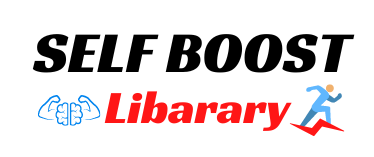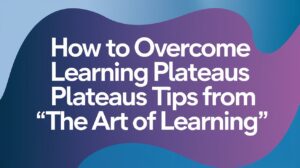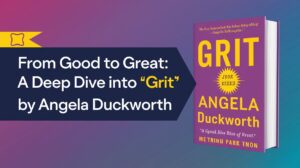In a world generally attributing success to talent, the book by Daniel Coyle entitled The Talent Code presents a fresh look at skill acquisition broken down into its basic component parts. Confronting conventional wisdom on whether talent is an inborn gift, the book truly reflects the belief that great skill can be grown through deliberate practice with deep focus and the right environment. In this article, we’re going to really dig in and summarize The Talent Code by looking into key lessons, best lines, and actions that you can take in order to help you implement the power of these concepts in your own life.
Overview: The Talent Code
This book, The Talent Code by Daniel Coyle, originally published in 2009, is a journey through methods of skill development. In essence, Coyle postulates that talent is not a gift but rather the result of “deep practice,” entailing concentrated and focused effort. The book focuses on three main areas: “Deep Practice”, “Ignition”, and “Master Coaching”, all coming from different standpoints to understand skill acquisition.
- Deep Practice zeroes in on the process of breaking skills down to their tiniest components and mastering those through focused and repeated practice.
- Ignition considers the role of passion and motivation in driving the individual to pursue mastery of a given skill.
- Master Coaching stresses the importance of guidance from skilled mentors, which refines practice and sustains motivation.
Coyle develops his arguments through examples of these talent hotbeds found around the world, where astonishing levels of skill emerge from apparently ordinary people.
Key Takeaways from The Talent Code
1. The Power of Deep Practice
Deep Practice: The Hidden Drive of Excellence Practice may be the most important aspect of mastery. Coyle insists that spending hours and hours on practice in itself is far from sufficient; it is basically a question of the quality of practice. Deep practice works via breaking down the skill into their smallest possible components, then rehearsing and practicing those components in-depth, then slowly building them back up.
For example, deep practice focuses intently on a few notes or measures, plays them slowly, and makes immediate corrections while learning a musical instrument. In this case, it lets the brain build White Matter-myelin-to strengthen the neural connections, gradually making the skill more automatic and efficient.
2. The Role of Myelin
Coyle introduces the concept of myelin, a fatty substance that wraps around nerve fibers and increases the speed and strength of the signal inside your brain. The more we practice something, the more myelin wraps around the relevant nerve fibers, in effect hardwiring the skill into the brain.
This is a key insight because it provides biological proof of why “deep practice” works so well. It means, through focused practice over and over again, we’re actually rewiring our brain for higher performance.
3. Ignition: The Spark of Passion
Beyond the mechanics of practice, The Talent Code emphasizes the importance of ignition—a powerful burst of motivation that propels individuals to start their journey toward
mastery. Coyle writes of this ignition, generally speaking, as being fired by one or more of the following: an inspirational role model, life-changing experience, or personal linkage with the skill at hand.
Ignition is critical because it furnishes the emotional fuel that sustains the long, often tortuous journey of skill acquisition. Without it, even the most disciplined practice routines can break down.
4. The Value of Master Coaching
Coyle then zeroes in on the crucial role of master coaches-those mentors who provide knowledgeable guidance, feedback, and encouragement. These coaches help individuals perfect their practice by keeping them motivated and unwavering when faced with obstacles. The best coaches, Coyle says, are those who can break complex skills down into parts with which to work, give clear and constructive feedback, and inspire students to push beyond perceived limits.
This lesson therefore complements the view that one seeks a more experienced mentor who would fast-track the learning process and guide one through any obstacles in the process of skill acquisition.

Best Lines from The Talent Code
The Talent Code is a treasure of quotes summarizing crucial messages across the book. Here are some of the most striking lines from this book.
- “Talent is not born; it’s grown.”
This line summarizes in a nutshell the conventional belief that talent is born, not made. This is a summary of Coyle’s argument that given the right practice and environment, everybody can develop remarkable skills. - “Struggle is not an option: it’s a biological requirement.”
Coyle emphasizes that growth occurs with the process of struggling through challenges. It is within this struggle that the forcing of adaptation and strengthening is going on in the brain to develop skills.
- “Practice doesn’t make perfect. It makes myelin, and myelin makes perfect.”
This quote supplements and confirms how imperative myelin is in skill acquisition and further extends to reaffirm deep practice as an important constituent. - “Greatness isn’t born. It’s grown. It’s built on deep practice, ignition, and master coaching.”
This line captures the whole heart of the book: greatness as an outcome of a deliberate and structured effort put into learning.
What is the secret of talent? How do we unlock it? In this groundbreaking work, journalist and New York Times bestselling author Daniel Coyle provides parents, teachers, coaches, businesspeople—and everyone else—with tools they can use to maximize potential in themselves and others.
Whether you’re coaching soccer or teaching a child to play the piano, writing a novel or trying to improve your golf swing, this revolutionary book shows you how to grow talent by tapping into a newly discovered brain mechanism.
Practicing The Talent Code in Life
1. Deep Practice Applied to Life
The first principle to apply from The Talent Code into practice has to do with instituting deep practice in everyday life. You identify one skill you want to develop, break it down into smaller components, focus on each one of them, and practice them over and over again. Instead of speed, you seek precision. Deep practice will help you a lot in language learning, in fitness training, or while playing a musical instrument.
For instance, if you are learning to play the guitar, other than practicing whole songs, spend your time on the difficult chords or transitions, making sure you can perfectly play them at a slower pace before gradually increasing your speed. This will make the desired neural pathways for the future, so that in the future, you will be able to perform more complicated pieces without an effort.
2. Feeding Your Passion
Ignition’s sparks fly when you can hook up to deep reasons why you want to become good at something. The task might be simply setting personal objectives, finding a role model to inspire you, or immersing yourself within an environment where one knows things might just spur them toward passion. As an example, you like to write: read great books, join the writing club, follow authors on Twitter.
Your connection to this passion will keep you going during those inevitable hard times. The motivation to keep on with practice and improvement, and to make your way through slow progress, is sustained.
3. Seeking Master Coaches
Again, find yourself coaches or mentors who can guide you through it. This will entail seeking out individuals who excel in the particular expertise, can offer constructive feedback, and break down intricate tasks into simpler components of it. For example, if one wants to hone their public speaking, he or she should join a group like Toastmasters, where established speakers can provide guidance and feedback.
A good coach will help you speed up your learning curve, save yourself from making all those same old mistakes, and preserve your motivation. Never be afraid to ask for feedback-open yourself up to constructive criticism, because that is how real growth begins.
4. Love Your Struggle
Realize that struggle is part of learning. Besides, instead of avoiding challenges, view them as chances for growth. If you find yourself facing a challenge, just know your brain is getting stronger because of the discomfort you feel using a neural pathway repeatedly to get through something.
The moment one learns a specific way to solve a particular problem in a new programming language that happens to be complex, for example, he shouldn’t give up. He should divide the problem into smaller pieces and understand each piece and practice through it until it is overcome. By doing so, one solidifies his understanding and improves his skills altogether.
Greater Impact of The Talent Code
But beyond the realization of individual skill, The Talent Code holds very valuable implications for how we approach education, training, and talent development in general. By applying the principles of deep practice, ignition, and master coaching, educational institutions, sports teams, and workplaces have the potential to nurture rather than rely on innate talent.
For instance, schools can institute teaching methods that emphasize the mastery of basics through deep practice, which ensures the building of a rock-solid neural foundation to support advanced learning later in life. Meanwhile, organizations would build learning-supportive cultures within which the acquisition of skills and knowledge becomes encapsulated in the routine job practices of the working people; thus, the work environment keeps offering opportunities for people to learn and become better at something continuously.
Conclusion
The Talent Code actually develops a powerful framework for understanding how skills are acquired and how anyone can achieve mastery through deliberate practice, passion, and guidance. Daniel Coyle opens people’s eyes to the myth of innate talent; it catapults readers into an active agent in one’s development with very practical strategies applicable to any area of life. Whatever field you might want to excel in-be it sports, music, or academics among others-the teachings in The Talent Code are key in helping you unlock your potentials.
Practice deep, find your ignition, seek out master coaches, and don’t be afraid of the struggle. If you do, what’s more, you’ll develop the skills you want-through an indirect path, you will also change how you go about learning and developing generally, and that can lead to an upward spiral of success and fulfillment in every aspect of your life.






